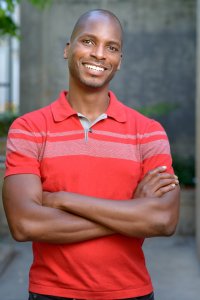A Q&A with Our Newest Director, Michael Arnold
 This fall, Dr. Michael P. Arnold joined the Informing Change team, and after a few weeks of settling in, he and I sat down to chat about why strategic learning and evaluation are important, and what motivates and shapes the way he does his work.
This fall, Dr. Michael P. Arnold joined the Informing Change team, and after a few weeks of settling in, he and I sat down to chat about why strategic learning and evaluation are important, and what motivates and shapes the way he does his work.
What drives you to help organizations evaluate and learn about their work?
I have a deep personal and professional interest in advancing diversity, inclusion and equity in the US and internationally, and in doing so, working in and with organizations that promote health equity through efforts that reach individuals, communities and other decision-makers. Whether this is work with low-income families of color, transgender youth or HIV-infected adults, we need to be working at the structural as well as individual and social levels to acknowledge and address complex determinants of health outcomes. A family’s use of school-based preventative healthcare services, for example, can depend on access to financial resources, residential transitions, and larger changes in health policies. Without understanding and addressing these influencers, organizations may reach fewer families than they hope. Shining a light on these system-level contributions and solutions drives me as a strategic learning partner to organizations.
So, how do we begin understanding how to accomplish systems-level change?
First: an inclusive approach to engaging and listening to communities. Systems-level change, however, requires more than just inclusion. When, through the voices of their communities, our clients recognize opportunities within their systems to affect change, they need meaningful evidence, supported by robust organizational capacity, to take agile and impactful action. My job is to help organizations hear those voices, gather data and make meaning of it so they have what they need to make informed, systems-aware decisions.
If inclusion and capacity-building are where learning about systems-level change begin, where do those inputs take us in our understanding?
I think they give us context, which has an important role in shaping how systems function and adapt. Not only that, but I also appreciate context as a driver for sustaining positive change. During my time in academia, I learned to appreciate the benefits and limits of highly controlled experimental design. Through those experiences, I’ve learned that, regardless of whether I’m gathering data through a random controlled trial or personal anecdotes, evidence must always be grounded in context for it to be useful.
That’s where strategic learning is really important—our work extends beyond the research question. We’re helping organizations understand how to use evaluation and learning to alter and adapt their work, and to clarify how those changes have ripple effects on the system they are a part of. To do this, we have to have a participatory approach where all stakeholders buy-in and contribute to shaping the evaluation based on their learning needs. Context, through an understanding of how different stakeholders, organizations and systems interact, is essential to this participatory approach.
Through your work as an evaluator, what are you hoping to achieve?
I hope to support the organizations and government agencies that are helping to break down barriers and facilitate dialogues between different groups of people. What drives me is also what helps me thrive: the pursuit of diversity, integration and cross-cultural dialogue.
What I love most about living in Oakland is that I feel like I can be whoever I want and need to be—for me. Just taking a walk around Lake Merritt, I see people young and old, families, couples, individuals who all represent a diverse cross-section of ethnicities, gender identities and sexual orientations. Being in this environment daily reminds me of my hope for America: that we draw on the strengths of our differences to exercise power with—rather than power over—each other to advance positive change. I bring my strengths as a researcher, communicator and strategic thinker to help our clients and communities do just that.

